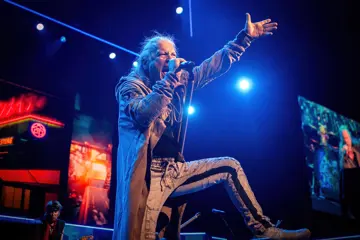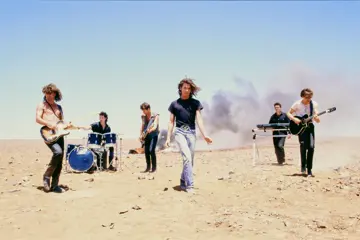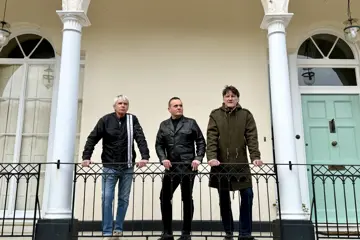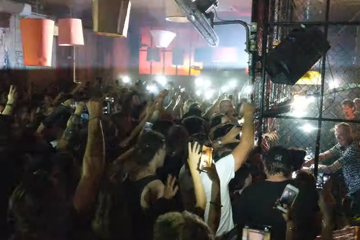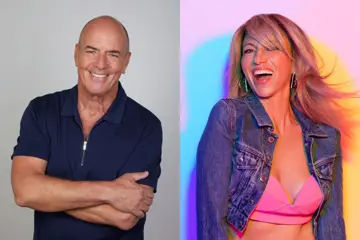For someone with a degree in jazz guitar from Queensland Conservatorium Of Music, Ryan Wyatt doesn't sound like he likes jazz. "I mainly grew up listening to sort of alternative rock. Later in life I got a little bit interested in electronic music. I never really listened to jazz a great deal," he admits over the phone.
Rather than encourage him to play Miles Davis in smoky bars, university sent Wyatt in an entirely different direction — smack bang into electronic composition. "By the time I'd finished studying I just wanted to play around with all these different sounds and textures as opposed to just studying harmony," he laughs at his confession.
"The whole time I was studying I was listening to music that eventually found its way onto the record, bands like Radiohead." Ah, a moment to deviate, musician to music critic — what did he think of Burn The Witch? "I've only heard it once. To me it sounds like um… Sounds like the umm… Nothing overly jumped out at me but I'll have to sit down and give it another listen," the "no name with an album" (he's openly self-deprecating, which is very endearing) says diplomatically.
"I just thought, like, 'what's the worst thing he can say? No?' If that's the worst thing that can happen, it's not hurting anyone by asking a question."
A background in music theory solidified by his classical training enabled the young Brisbanite to diversify and experiment with, sonically, strange combinations. Basically, he's recorded an acoustic album, melded it with electronic synth rhythms and featured the 52-piece Czech Philharmonic Orchestra, all under the influence of Van Dyke Parks — the legendary Grammy-winning arranger and music icon who's worked with Brian Wilson, The Beach Boys, U2, Randy Newman and Ringo Starr.
Don't miss a beat with our FREE daily newsletter
Wyatt sounds like he was a pretty ballsy uni student when he "just tracked [Parks] down to ask him about arrangement and music composition." Did he have any qualms about cold calling such an icon? "I just thought, like, 'what's the worst thing he can say? No?' If that's the worst thing that can happen, it's not hurting anyone by asking a question."
Bluster and blow seems to have served him well when making his debut, Patterns, especially when it came to organising the orchestra. "To have such musicians of that calibre, you're just sitting in the studio watching them knock it out like 'oh my god'. When you're… having to produce the Prague Philharmonic and you're sort of pretending to know what you're doing, talking to the conductor and the control room and briefings and stuff… Yeah, a bit of faking it 'til you make it!" FYI, he wrote the sheet music for the orchestra bar one song on the album. By hand. Appreciate the enormity of that task.
Patterns' unity comes from the philosophy behind it: "Using things that don't necessarily go together was one thing I was quite into compositionally. It was like a Picasso idea; taking ideas which are from two different areas and mixing them together, trying to create tension and capture that relationship between two things that don't necessarily fit," Wyatt explains.
So after ditching jazz for electronics and an acoustic guitar, is he planning on sticking on his current path? "I'm definitely interested in doing film work." So, composition, editing… acting? "Where'd you get acting from! No, yeah… No ha ha! Couldn't be anything further." We had to ask — he could have been a closeted jazz playing Shakespearean actor who produces electronic music in his spare time.

